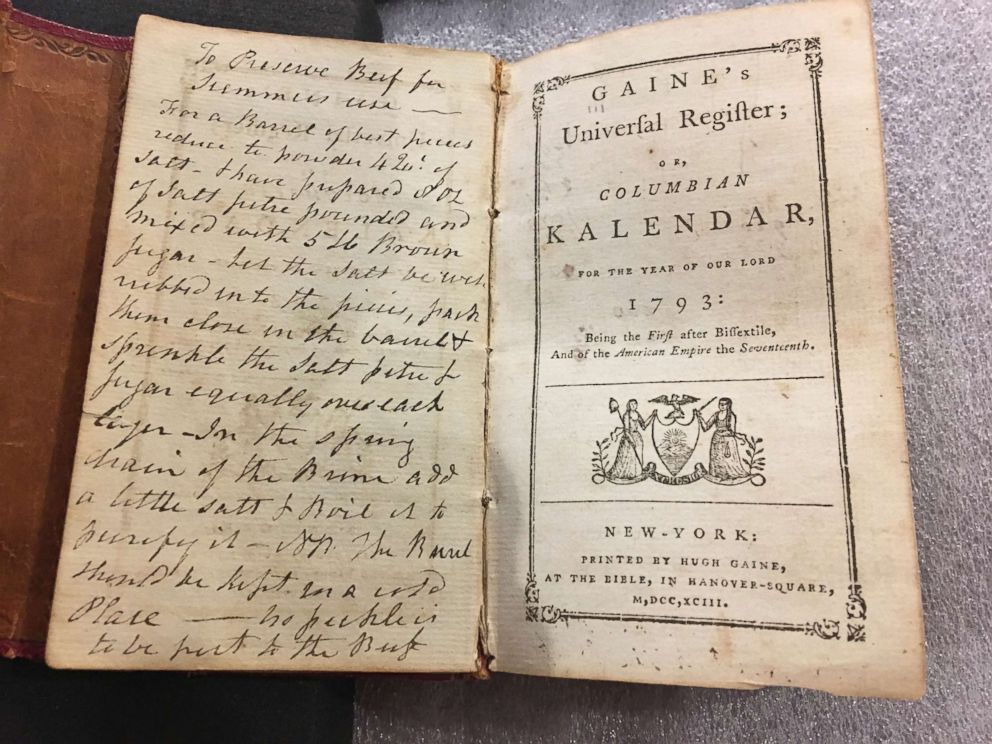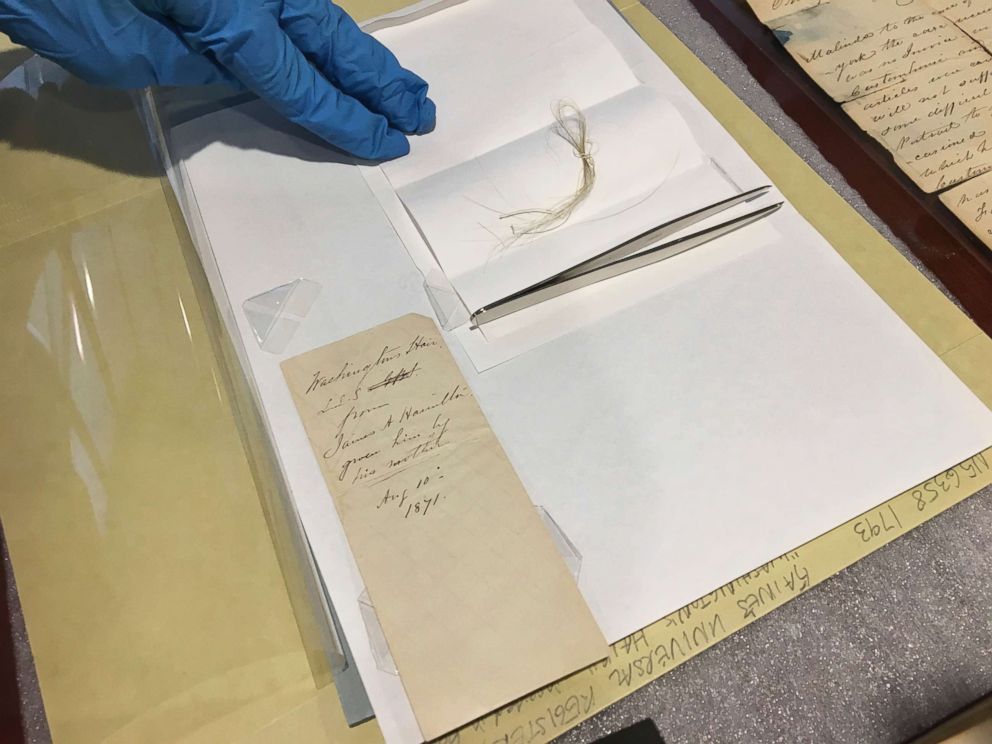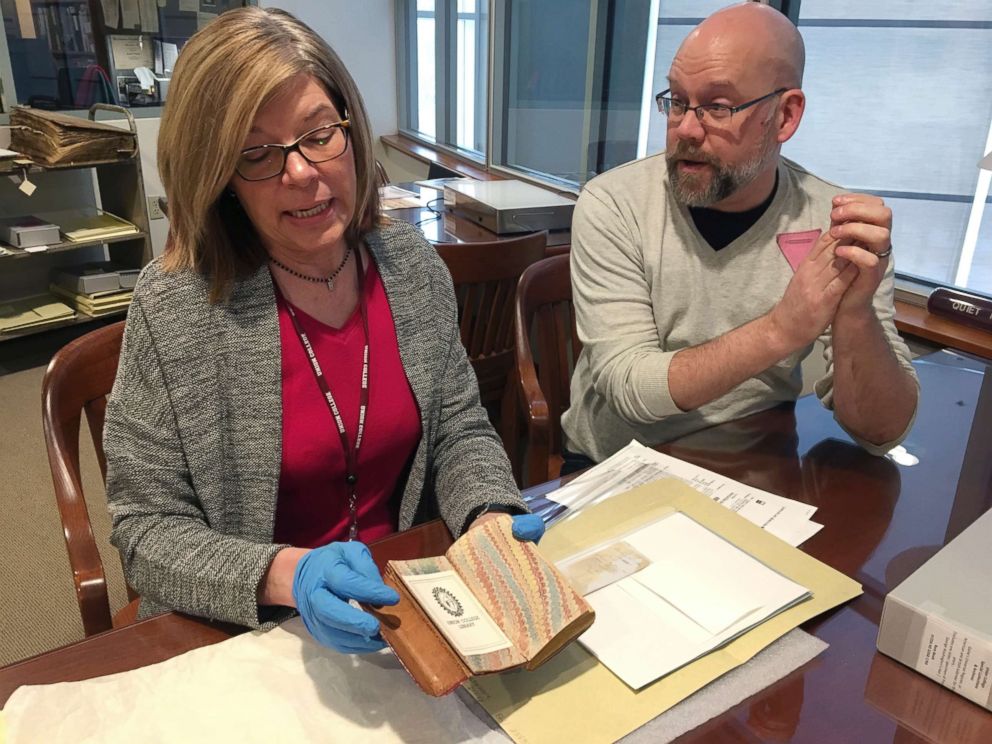College claims discovery of George Washington's hair, but fears DNA testing could destroy historic find
A college claims to have found George Washington's hair, but won't DNA test it.
— -- Union College has purportedly stumbled across an historic find hidden in the contents of a library book -- but the school is resisting a DNA test that could confirm the centuries-old find.
A librarian cataloging historic books in the Schenectady, New York, school's archive believes he stumbled across a lock of George Washington's hair neatly tied with a bow and kept in an envelope. But college officials do not want to risk destroying the sample by conducting a DNA test.
"It could be destructive to do DNA testing," India Spartz, Union College's head of special collections and archives, told ABC News. "[A DNA test] would take the hair and break it down."
She claims that the historical evidence that was discovered in December 2017 alongside the hair is enough for the college to consider the locks of hair as the real deal.
The hair was discovered in an envelope labeled "Washington's hair" inside an almanac that had once been owned by the father of Eliza Hamilton, Alexander Hamilton's wife.

"We have provenance that it links back to a family that were Washington's colleagues," explained Spartz of the Hamilton family's significance.
According to a note also discovered, the lock of Washington's hair was passed down through the Hamilton family.
"What was customary, often times, was that people would gift a lock of hair," said Spartz of the finding.
Difficulties could arise if the sample did undergo DNA testing.
"The biggest problem is contamination," Dr. Blaine Bettinger, a genealogist, told ABC News. "There would be DNA results [after a test], but figuring out if the results are from the hair's DNA or if it is the DNA of someone who has handled the hair would be the difficulty."

Since it is highly unlikely that the root of a strand is attached to the hair, the DNA test is limited, according to Bettinger, but it could provide in-depth knowledge of Washington's family history. Verification that the DNA was Washington's would take a comparison between the results and another person from his family's maternal line, said Bettinger.
"A test would reveal George Washingon's mother and his mother's mother and people could learn about his ancestry, which is, in this case, probably European," said Bettinger.
The issue comes with the fact the sample would be destroyed in the process.
"[The hair] would be permanently destroyed as part of the DNA testing," said Bettinger. "To me, it makes sense at the current time [to wait to DNA test]."
"I think technology will improve in a decade or two and then the amount of hair needed [for a test] could be substantially less," he added.

The college doesn't anticipate DNA testing the specimen anytime soon, Spartz agreed.
"We have a little bit of a wait-and-see approach," she said about DNA testing.
When the day comes that the hair can be tested, Spartz doesn't doubt what the results will show.
"My guess is that they would say this is from George Washington," she said.



